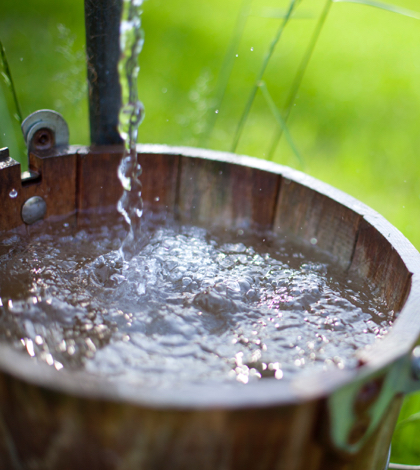The Central Coast Regional Water Quality Board (CCRWQB) has expanded its free domestic wells testing program for domestic water to Central Coast residents in San Benito County. Since first introduced by CCRWQB in 2017, the program has tested more than 450 domestic wells in San Luis Obispo and Monterey counties. The program is designed to provide residents the information to determine if their drinking water is safe and to provide details about water treatment options and the availability of free bottled water, if needed.
“Protecting the public’s health is our highest priority,” said Dr. Jean-Pierre Wolff, chair of the CCRWQB. “The well sampling project aligns with that priority and with our staff’s efforts to assist residents and disadvantaged communities in identifying and addressing unsafe drinking water conditions where they exist.”
Contamination of drinking water can occur for a number of reasons including land uses. Nitrate, a polyatomic ion, can seep into well water from fertilizers – common in rural, agricultural areas – or from septic tanks. Water contaminated with nitrate can lead to health risks, especially for infants less than six months of age and women who are pregnant or nursing. Nitrates in blood cause changes in hemoglobin making less oxygen available for the body to function appropriately.
Drinking or cooking with water containing high nitrate levels should be avoided. Boiling the water in this situation is not safe, and, in fact, worsens the problem by increasing the nitrate concentration. If residents find their wells have unsafe levels of nitrate, they are advised to get the appropriate treatment or use bottled water.
In addition to nitrates, some geographic areas are naturally high in arsenic. The U.S. Environmental Protection Agency claims that all forms of arsenic are a serious risk to human health and is a carcinogen. And can infect the bladder, kidneys, liver, prostate, skin, lungs, and nasal cavity. Naturally occurring arsenic is found in volcanic ash, weathering of minerals and ores, and mineralized groundwater.
Officials recommend that domestic well owners check their drinking water at least once a year. In some areas testing results indicate that approximately one in four domestic drinking water wells have unsafe levels of nitrate, arsenic or other common contaminants. Free bottled water programs may be available if wells are contaminated.
“I encourage people to take advantage of this free opportunity to have their wells tested to ensure their drinking water is safe for their families,” said Darryl Wong, director of the Department of Environmental Health for the County of San Benito.
Residents concerned about consuming drinking well water and possible health risks should contact their doctor. Well testing services are available in the three counties mentioned above and are available by staff fluent in Spanish and English. For additional information or to sign-up for testing residents should call the bilingual, toll-free number at: 844-613-5152, or go to: https://sites.google.com/view/ccgroundwater.
 California Water News Daily Your Source For Water News in California
California Water News Daily Your Source For Water News in California


